![[feature] 7 Pasta Mistakes Everyone Makes](https://blogger.googleusercontent.com/img/b/R29vZ2xl/AVvXsEgGrLflr9bWOurIUw-tZjSpEGbBtryWUfKjIWxVIX8LtI5Md6LAcFH0uSQtSIWVRYZKKCvfjtPK8V0Zsa2R4VtrX2Z2WlkLkyfnATV_uaf5IdiAPhq048u6JDnPw7OnlEQVf2G_qYulH6ESP-k3lZx-zEfbjNx5gWUq62WPp_6EcVVMhZls-bvBhmd6_w/s16000/pasta-mistakes.jpg) |
| © Provided by Gourmandize |
By Stephanie Holmes, Gourmandize
Avoid these common errors so you can serve the tastiest, highest-quality pasta dishes all the time.
Overcooking the Pasta
 |
| © Provided by Gourmandize |
The number one mistake people make when making pasta dishes is overcooking the pasta itself. To perfect your next pasta meal, try to slightly undercook your pasta. Check the pasta package for the recommended cooking time, then drain your pasta about a minute or two before that time. This means your pasta is very close to achieving that coveted al dente texture, and you can finish cooking it in the sauce of your choice for a flavorful and perfectly cooked pasta dish.
More Recipe: Slow Cooker Saucy Sunday Bolognese Pasta Recipe
Not Salting the Water Enough
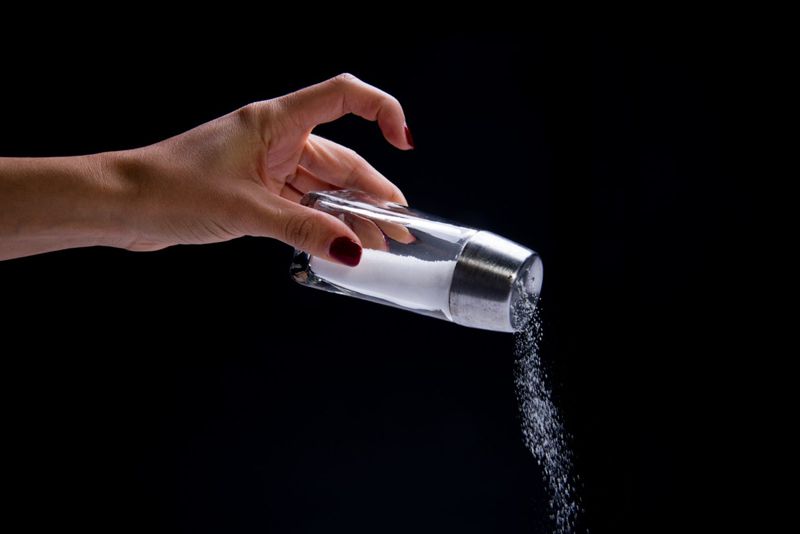 |
| © Provided by Gourmandize |
When you're making pasta, the water you cook it in should pretty much taste like the ocean. The saltier, the better. As a rule of thumb, use about one tablespoon of salt per quart of water. Also, avoid putting oil in your pasta water. This does absolutely nothing to help the pasta cook and will actually prevent the pasta from properly absorbing flavor from the cooking water and later on the sauce. You'll just end up with flavorless, oily pasta, and who wants that?
Adding the Pasta Before the Water is Boiling
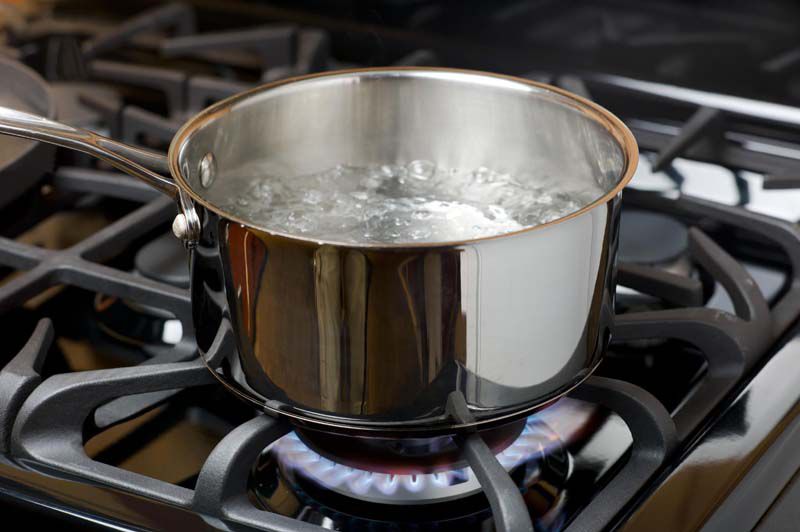 |
| © Provided by Gourmandize |
Don't add uncooked pasta to the cooking water, until it's at a full, rolling boil. Otherwise, the pasta could end up with a mushy texture, as its starch dissolves faster in tepid water, causing it to break down easier. It also becomes more difficult to monitor for doneness, as most pasta boxes have recommended cook times that correspond to the pasta being cooked in boiling water. While it's not impossible to cook pasta in cold water, for the most reliable results, you're better off doing it the traditional way.
Forgetting to Stir the Pasta
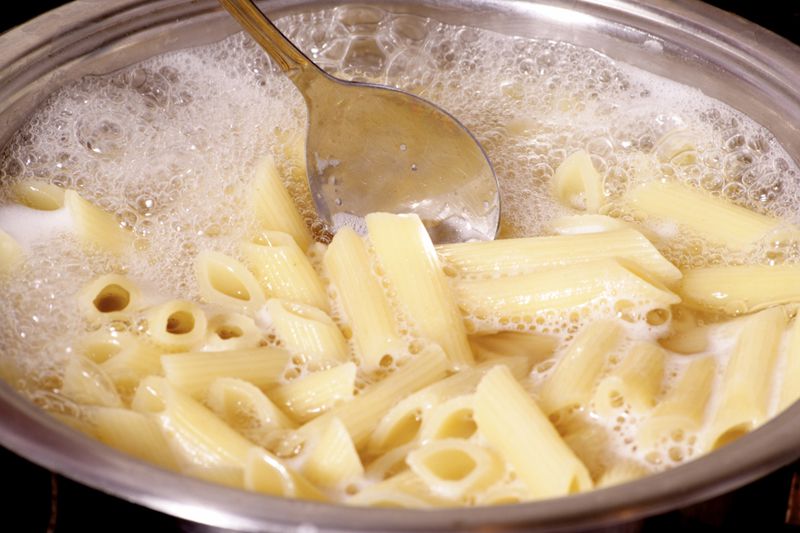 |
| © Provided by Gourmandize |
If you've ever drained a pot of noodles only to find that half of it is sticking to the bottom, or there's uneven texture, you probably didn't stir it enough during the cooking process, if at all. Once you've added the pasta to boiling, salty water, stir it right away with a large wooden spoon so the pasta doesn't stick together. Stir occasionally to ensure even cooking and keep the pasta from sticking to the bottom of the pan as well. You should also choose a large enough pot that's going to give the noodles plenty of room to grow.
More Recipe: One-Pot Baked Spinach and Artichoke Mac and Cheese Recipe
Rinsing the Pasta after Cooking
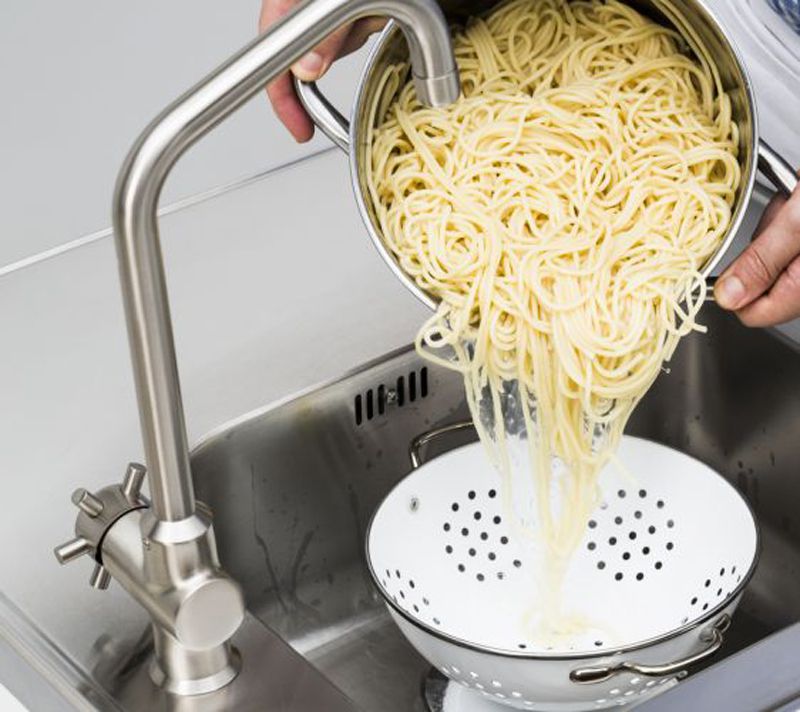 |
| © Provided by Gourmandize |
If you're serving your pasta warm, absolutely, under no circumstances, should you rinse your pasta? Doing so removes the starch from the cooking water, which means the sauce won't have anything to stick to. The only time where it could be acceptable to rinse your pasta is for cold pasta dishes, which will help stop the cooking process and cool it down faster.
Letting the Pasta Sit Too Long
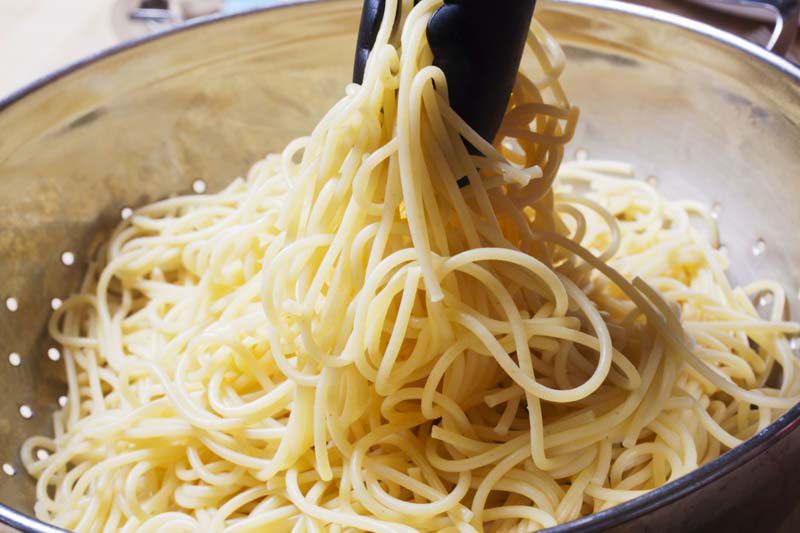 |
| © Provided by Gourmandize |
It's obvious that you should drain your pasta immediately after cooking it, to remove most of the liquid and stop the cooking process. What you want to avoid, however, is letting the pasta dry out completely. If your pasta get's too cold, it will begin to stick together, making it one glob of starch that's hard to work with. One way to avoid this is to stir a knob of butter through the pasta after draining, to help keep the noodles separated.
Throwing Away the Cooking Water
 |
| © Provided by Gourmandize |
When you're making pasta, don't let all the cooking water go to waste. The starch that's been released by the pasta while it cooks will help to thicken your pasta sauces and add extra flavor. It also helps sauces stick to pasta more easily. A good tip would be to save about a cup's worth of cooking water as you drain the pasta. Then, when you're making the sauce, add some of the cooking water bit by bit, until you get the desired texture (thinning it out or rendering it creamier, for example).
Cooking pasta might seem like a basic skill, but as you can see, there are still ways to mess it up! Avoiding these simple mistakes will help you serve better pasta each and every time.
See more at Gourmandize























